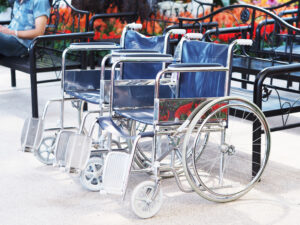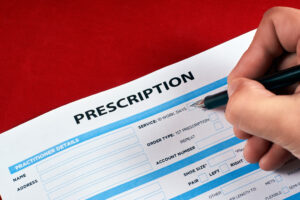Last Tuesday, I stood in line at the pharmacy for the third time that month. The guy behind me sighed and muttered something about “this place being his second home.” I laughed because, honestly, same. Between my blood pressure pills, cholesterol medication, and that cream for my shoulder, I was practically on a first-name basis with every pharmacy tech in town.
What This Service Actually Does
That day, while waiting for my prescription, I noticed a poster about medication synchronization. I’ll admit, it sounded like corporate nonsense at first. But Margaret, the pharmacist who’s been there since the place opened, explained it like this: “Instead of coming here every week, what if all your pills were ready on the same day?”
I stared at her. Why hadn’t anyone told me about this before?
The idea is stupidly simple. They figure out how to get all your medications on the same schedule. No more random pharmacy runs. No more trying to remember if you called in that refill. Everything’s ready on one day each month.

Pharmacy Provides Medicine
Getting Everything Lined Up
Starting the program felt weird. They gave me 23 pills of one medication and 41 of another. Margaret pulled out an actual calculator and showed me the math. “By next month, everything will match up,” she promised. I thought she was nuts, but I went along with it.
The whole setup took about twenty minutes. She asked when I wanted my pickup day (I chose the 10th because it’s after payday), went through all my medications, and even called my doctor’s office to clarify something about my prescription. No fancy computer system—just Margaret with a notepad and decades of experience.
What Changed for Me
Here’s what nobody tells you about managing multiple medications: it’s exhausting. Not the taking pills part—that’s easy. It’s the mental gymnastics. Did I refill the blood pressure medication? How many days left on the cholesterol pills? Should I call today or can it wait until tomorrow?
All that noise? Gone.
Now, around the 7th of each month, someone from the pharmacy calls. Usually it’s Tyler, who sounds about twelve but knows his stuff. We run through my medications, he asks if anything’s changed, and that’s it. On the 10th, I show up, everything’s in a bag with my name on it, and I’m out in five minutes.
My wife noticed the difference before I did. “You’re not grumbling about the pharmacy anymore,” she said one night. She was right. That low-level stress I’d carried for years had just… evaporated.
Finding the Right Pharmacy
Look, I tried one of those big chain pharmacies first. They had an app and automated calls and the whole nine yards. But when my doctor changed my dosage mid-month, their system couldn’t handle it. “You’ll have to wait until next month to sync that one,” they said. Helpful.
Margaret’s pharmacy? She figured it out with a Post-it note and a phone call.
If you’re shopping around, here’s what to ask: What happens when you go on vacation? Can they handle it if some medications are 30-day supplies and others are 90-day? What if your insurance changes? The good places have real answers. The bad ones give you corporate-speak.
Actually Living With It
Two years in, here’s what I’ve learned. First, pick a sync date that makes sense for your life. Not just financially, but practically. I know someone who picked the 31st and then struggled every February. Think it through.
Second, use those monthly calls. Tyler once mentioned that my heartburn medication might be interfering with my blood pressure pills. Took that tidbit to my doctor, and sure enough, we needed to adjust the timing. Would never have known otherwise.
Third, don’t be proud about asking questions. These pharmacy folks see hundreds of patients. They know which medications make you dizzy, which ones shouldn’t be taken with grapefruit juice, which ones have cheaper alternatives. They’re not just pill counters—they’re a resource most of us ignore.
Is It Worth the Switch?
I ran into that same guy from the pharmacy line at the grocery store last month. Mentioned I hadn’t seen him at the pharmacy lately. Turns out, he’d started medication sync too. “Can’t believe I used to waste so much time there,” he said.
That’s really what it comes down to. Time. Energy. Peace of mind. Medication sync isn’t going to cure anything or change your life dramatically. But it takes one annoying, repetitive task and makes it simple. In a world where everything feels complicated, I’ll take simple any day.
Ask your pharmacist about it. Worst thing they can say is they don’t offer it. But if they do? You might just find yourself with a little more time and a lot less hassle. And honestly, couldn’t we all use both?




